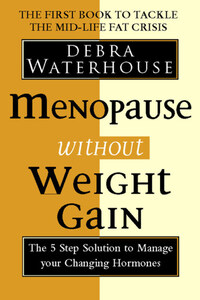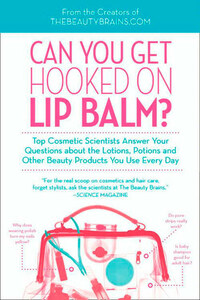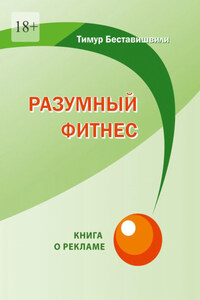Menopause without Weight Gain
The 5-step solution to manage your changing hormones
DEBRA WATERHOUSE, MPH, RD
To my sister and best friend
Lori Waterhouse Erwin
who radiates beauty inside and out
The advice in this book is not intended for persons with chronic illnesses or other conditions that may be worsened by an unsupervised eating and/or exercise programme. The recommendations are not intended to replace or conflict with advice given to you by your doctor or other health professional, and we recommend that you do consult with your doctor. The author and publisher cannot be held responsible for any results arising from use or application of the information in this book.
Except for those who have given permission to appear in this book, all names in this book have been changed. In some cases, composite accounts have been created based on the author’s professional experience.
Menopausal weight gain – it’s real, it’s necessary and it’s the most stubborn weight gain you’ll ever experience. It’s more stubborn than the weight you gained during pregnancy, and it’s as essential as the weight you gained during puberty. It also starts when you’re younger than you’d ever imagine and lasts longer than you’d like.
You may be in your mid-thirties when the first few pounds mysteriously appear regardless of how little you’ve eaten or how much you’ve exercised, in your mid-forties when you come to the disheartening realization that your waist is 2 inches wider and your body is a full size larger, or in your mid-fifties as you wonder if and when it’s ever going to stop. Whether your midlife weight gain is just beginning or finally tapering off, you are among the millions of frustrated women who are crying out for help with their expanding waistlines and changing bodies.
This book is the answer to your universal cry for help – providing the knowledge, understanding and solutions necessary to manage this mysterious weight gain and outsmart your ‘midlife fat cells’.
If you are in your mid-thirties to early forties, your initial reaction may be one of shock and resistance: ‘But I still have my periods and I don’t have hot flushes! I can’t possibly be in midlife! I’m too young to be menopausal!’ The average woman lives to be about 80 years old, so the midway point is age 40 – marking midlife. And, although you are probably too young to be menopausal, you’re not too young to be just entering the transition to the menopause – or, as it is called now, the perimenopause. The menopause is the clinical term used to mark the end of your menstrual cycles, but the perimenopause refers to the years surrounding that event. Not just a couple of years, or a few years, but up to 20 years beforehand. Research is finding that this transition starts in the mid-to late thirties for most women and ends in their mid-fifties. That’s one quarter of our lives!








